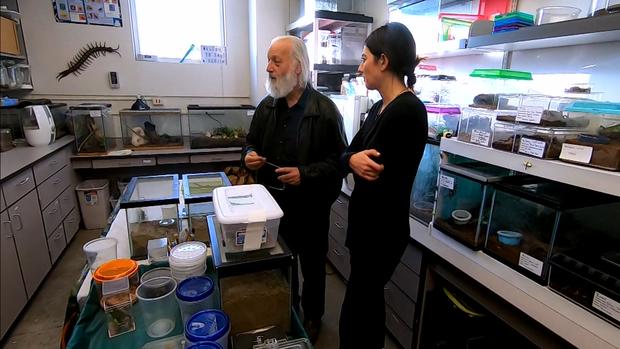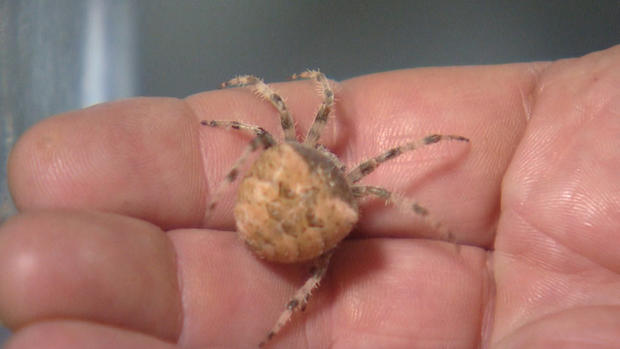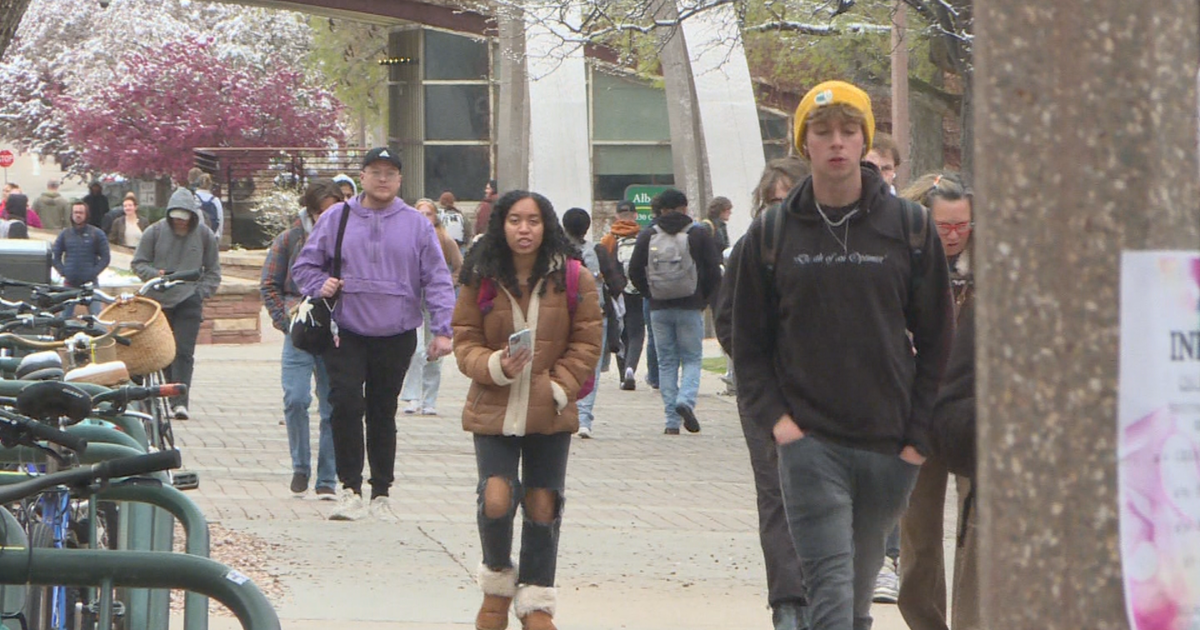Cat-Faced Spider Gets Lots Of Attention, Thanks To Colorado State University Contest
FORT COLLINS, Colo. (CBS4) - The "How-Big-is-Your Cat-Faced Spider" contest, tells you all you need to know in its title. The contest, run by Colorado State University Professor Whitney Cranshaw, is something the entomology department looks forward to annually. It's one of many ways Cranshaw helps people understand -- and even love -- bugs.
"The cat-faced spider is a very large, kind of odd looking spider. It often lives right near windows and people see it and they get worried about it because it's an odd, big spider," said Cranshaw. "So, by having a contest, that's one way I figured you could kind of talk about in a more neutral way and hopefully reduce anxieties."
According to CSU, the cat-faced spider (Araneus gemmoides), also known as the Western Spotted Orb Weaver, is one of the largest Colorado spiders, and one of the odder looking spiders. This spider gets its common name cat-faced spider because of a pattern of its body. The abdomen is very large and generally round, with small pointed humps at front (the cat's ears). And there are small indented markings on the abdomen, somewhat resembling a pair of eyes and, perhaps, a nose.
Cranshaw, a professor of Entomology and Extension Specialist at Colorado State University, has been leading the spider contest for 11 years. This year, he weighed a record winner.
"It was bigger by 25 percent than any other spider that's ever come in. The previous winner was a spider that was a little under 3 grams named 'Arach Obama.' I love that name. ... It was from Denver."
The winner, dubbed "Princess Raya," weighed in at 3.76 grams. She was discovered and named by nine-year-old Raya Davis Thompson of Lamar.
"It sounds like the whole neighborhood got involved in it and fed it, so I guess it takes a neighborhood," Cranshaw said.
CSU says Thompson had been watching the spider all summer and the neighborhood would frequently come out to watch her capture insects. It's the exact kind of interaction Cranshaw hopes the contest continues to generate.
"This spider, and essentially all of the spiders we have in Colorado, are harmless to humans. It just looks big and people assume if it looks big, it's more dangerous but it's not. It's not going to bite you. It's going to live in its little web. It just has a big fat body and funny little points on its back and maybe little dimples that make it look like a cat face," he said.
Next week marks 37 years of working in entomology at CSU for Cranshaw. This will be his last year teaching -- he plans to retire and pursue research full-time.
"It's also time for new people to come in, we need more young whippersnappers in here, too," he said with a laugh.





